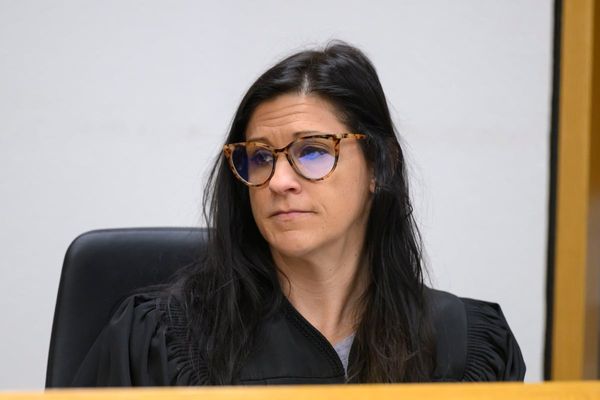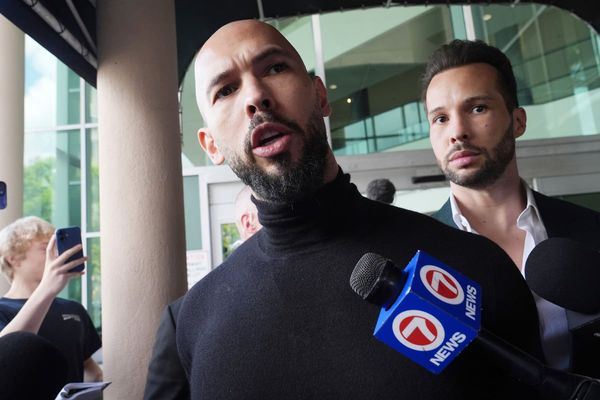
A slump in the number of younger people in England and Wales getting married has sparked fresh calls to protect rights for those not in legally registered partnerships.
Amid a continuing decline in marriage, figures from the 2021 census showed the biggest fall came among people aged 25 to 35, with 1.2 million more people unmarried in that age bracket than there were in 2011.
In 1991, 2.7 million 25- to 35-year-olds were unmarried. Today that figure is more than double, at 5.8 million, the census revealed.
Family lawyers said people in unformalised partnerships who split up risked losing out financially under current laws covering co-habitees that were “outdated and unfit for purpose”.
They called for automatic rights for separating unmarried couples to prevent a less well-off partner being severely disadvantaged by a break-up. Cohabitants have no automatic entitlement to financial support from each other or a share of assets by simply living together.
Pro-marriage campaigners blamed the slump on factors ranging from welfare rules, which restrict payments for married and cohabiting couples, to a wedding industry that promotes expensive ceremonies, making the institution appear beyond reach for younger people already struggling with rent and rising living costs.
Last year’s census was the first since same-sex marriage was introduced in 2014 and showed that 134,000 people were in same-sex marriages, 67,000 in same-sex civil partnerships and 36,000 in opposite-sex civil partnerships. Taken together, it amounted to one in 200 people aged over 16.
Central London, Liverpool and Brighton emerged as the places with the largest numbers of people who have never married – close to half. Marriage hotspots included Richmondshire in Yorkshire, mid-Suffolk and Berkshire. The median age of people in opposite-sex marriages increased to 55 and was 44 for people in same-sex marriages.
“Concerningly, the largest reduction in marriages is in the 25- to 35-year age group, given that these are the couples who are likely to have young children together,” said Anna Stanworth, senior associate at law firm BDB Pitmans. “If they were to separate, they will not be treated in the same way as married couples. A separation in future could therefore leave one party, who may have given up work to look after the children, in a financially difficult position.”
Karen Dovaston, the chair of the Law Society’s family law committee, said there was a lack of awareness about how vulnerable unmarried couples could be. “If we recognise cohabitation as OK then we should look at legislation that supports that.”
The Marriage Foundation, a charity that promotes marriage, said the social pressure to marry in the UK had “pretty much disappeared”, despite “the psychology of marriage remaining deeply compelling”.
Harry Benson, the charity’s research director, argued that the process of making an active decision to be together tended to increase commitment and remove ambiguity, which was “one of the biggest relationship killers”. Getting married in front of your peers also creates “accountability”, he said.
But he said marriage was falling because it had come to be seen as optional. He said government messaging often projected cohabitation and marriage as equal, while an “irresponsible marriage industry that claims the average cost of a wedding is £30,000” was deterring people. He also highlighted how the welfare system limited payments to married people.
“The decline of marriage is much less obvious among high income groups,” Benson said. “The miracle is that anyone in lower income groups marries at all with this huge couples penalty.”
The figures also come after the census revealed that more people under 40 in England and Wales now declare “no religion” than profess to be Christian – the first time the UK’s dominant religion has been pushed into second place in any age group.
The bishop of Durham, Paul Butler, said Church of England research showed most 18- to 35-year-olds hoped to marry but saw it as the “crown” in their relationship rather than the beginning.
“I want to reassure couples that they don’t have to be churchgoers to have a church wedding, they don’t need to be christened, and we welcome couples who already have children,” he said. “Mindful of the impact of the cost of living crisis, the General Synod has also backed plans to ensure that wedding fees rise well below the rate of inflation in 2023.”







